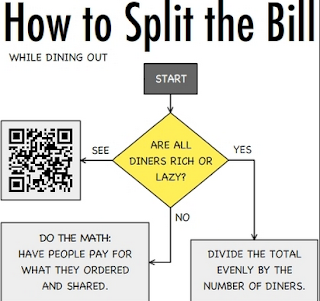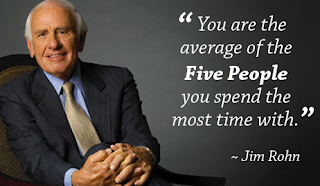A few days ago, I came across a post on 4 inconsiderate ways Singaporeans pressure their friends to spend money. It highlighted 4 common situations we face, where friends get you to split the bill evenly with them when your share was not equal to theirs, asking you to share cabs, buy new stuff and choose expensive social activities to indulge in as a group.
I was discussing this article with a good friend, and asked her how she typically deals with such situations. Her answer made me realize that many people generally do not know how to handle these scenarios well, and fear that if they say no to their friends, they may damage or even lose the friendship. We worry about being seen as the “wet blanket” in the group, or being taunted as too “cheapskate” if we propose a cheaper alternative instead. So generally, most Singaporeans I know tend to just give in. The common way out we take include:
Making excuses.
Perhaps the most common answer of the lot. Your friend asks you if you want to go to a cafe this weekend for an expensive brunch that is probably going to bust your daily budget. Instead of rejecting her outright, you start making excuses that you’re busy and the cafe is too far / you’re on a diet this weekend / you don’t feel in the mood for brunch / you’re too busy, etc.
Even if your friend doesn’t call you out on your excuses, you’ll run out of them one day.
The other way out would be to simply skip the social outing together. Your friends are going to a cafe to catch up this weekend? You’ll join them the next time (perhaps when they go someplace cheaper instead). But as we skip outing after outing, our friends slowly start to get tired of inviting us (“John won’t come for sure even if I asked!”), so they stop jio-ing us.
Bit by bit, you drift apart, and your friendship fades or even disappears completely.
Give in.
The easiest, but also the most damaging thing to do – give in. Okay, let’s go to that cafe this weekend since you want it. Go to KBox on a Sunday and pay $35 for a karaoke session next week? Honestly I rather not, but let’s go ahead anyway.
Over the long run though, we all know what that means for your wallet (especially when you track your expenses, like how I do daily on a free app).
So how do you then say no to your expensive friends, without damaging the friendship?
1. Become the planner in the group instead.
Rather than let another friend take charge and suggest social activities that turn out to be quite pricey, avoid the whole problem right from the beginning and simply be the one who plans for your outings. Offer ideas on things you guys can do together that need not break the bank. I’ll share more in a future post on some of the ideas I often use, but for instance, you can suggest a potluck picnic at Marina Barrage or going cycling at East Coast Park. Both options will cost no more than $10 per person, or even less!
2. Say you’re saving up for [insert reason here].
Highlight to your friends that you’re on a budget because you’re saving up for your BTO flat / upcoming wedding / overseas trip to Europe in December. When you justify your reasons for not wanting to spend, true friends generally become more understand and sympathetic towards your need to save. The key thing is that you need to let them know, instead of simply assuming or hoping that they will realize this. Even if your friends know that you’re engaged, they may not be aware that you don’t have enough money for the wedding until you tell them so.
3. Speak out and be honest about your money.
If your friends are getting you to split the dinner bill evenly despite the fact that you ordered a cheaper dish or even skipped the drink completely, speak out about it. Gently remind them that you didn’t eat as much as they did so that they’ll realize it’s unfair to ask you to pay for a share that you didn’t eat. What I usually do is to split the bill once it arrives, and either start calculating my own share or that of everyone’s, so we only pay what we really owe.
If even doing that sounds embarrassing for you, then here’s an easier trick I use sometimes – discreetly excuse yourself from the table, and ask the waiter to split the bill before everyone is finished with their meal. Then, when the separate bills arrive, you avoid the entire problem of having to calculate and speaking out about the uneven shares altogether.
4. Say no to these friendships.
Honestly, if your friends are true friends, it shouldn’t be difficult to handle and say no to them. But as a last resort, if your friends are really costing you too much, then perhaps you might want to reconsider the friendship and evaluate if it is worth your time and money to continue hanging out with these people. In one of my previous posts, I shared about how I had one such friend, and decided that it was no longer worth it for me to continue hanging out with her so often. The last time I saw her was probably last year, but in deciding to stop prioritizing such an “expensive” friendship which I saw little returns in (emotionally and financially speaking), my life became better. I had more time and money to invest into my job and even start up this blog. Yes, we had some great fun together, and I still cherish those memories, but the painful truth was that she wasn’t helping me to become a better person.
I’m not saying you should kill all your “expensive” friends immediately, but really weigh the value of the friendship and what it means to you. After all, don’t forget that you’re the average of the 5 people you spend the most time with. Furthermore, true friends won’t be calculating about the number of times you meet them. I see my best friend only about 3 times a year, but she’s always there for me whenever anything major happens in my life.
So be honest with yourself, and choose the friends whom you want to spend your time with wisely.
5. Out of sight, out of mind.
The last tip I have is what I started doing just last year – keep such peer pressure and “spending” temptations away from you. I used to read a lot of beauty and lifestyle blogs, follow models and chio bus on Instagram and be envious about their picture-perfect life, and watch tons of reality TV. But when I exposed myself to such stuff, I was also unknowingly influencing my subconscious to spend more by giving into the trends that these people were advocating.
Remember my post where I reviewed Namu Life’s Snail White cream? I was seeing a lot of Instagram and Carousel posts about this product, with bloggers raving about it, and I ended up buying it too without exercising too much caution. What happened? It didn’t work for me. Now ordinarily, the skeptical Budget Babe would have avoided such a product entirely, but my subconscious was taking in and remembering all those rave reviews I read about it, which resulted in me buying it when I ordinarily wouldn’t.
Now that I’ve cut down on such reading materials online / TV programmes, I no longer get exposed as much to these trends anymore, and I keep my subconscious “protected” from such spending influences.

What are some other ways you use to deal with such expensive friends? Do share with me below if you’ve found this helpful!
With love,
Budget Babe










3 comments
Hi Budget Babe,
I'd like to learn GP from you. When will you be free to teach me?
I could let you do the planning. =D
Regards,
Matthew
Nice post!
Did you know you can create short links with AdFly and make dollars from every visit to your shortened links.
Comments are closed.